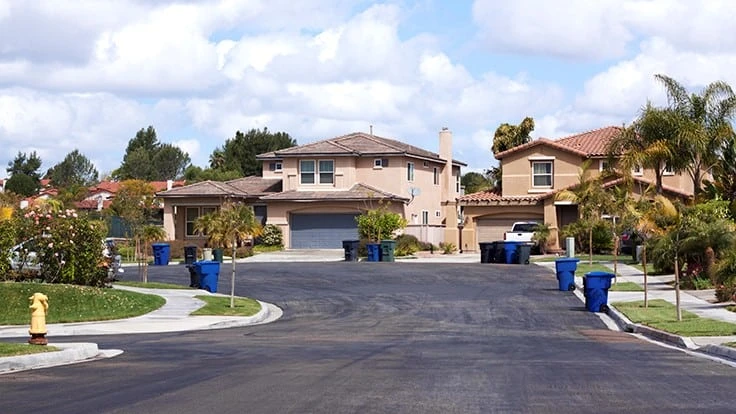
A new report co-authored by Boulder, Colorado-based Eco-Cycle and Denver-based CoPIRG reveals that Colorado’s recycling rate dropped from 17.2 percent in 2018 to 15.9 percent in 2019, which is less than half the national average of 35 percent. The report, the “State of Recycling and Composting in Colorado” also shows that Coloradans sent 6.1 million tons of municipal waste to landfills, more than 90 percent of which could have been recycled or composted to the benefit of the climate and the local economy.
Despite the downward trend, the report also featured updated city-by-city recycling rates and held up the cities of Boulder, Loveland, Aspen, Durango and Fort Collins as leaders.
“We were initially discouraged by our report findings that Colorado recycled less and wasted more—two trends moving in the wrong direction,” Kate Bailey, policy and research director at Eco-Cycle and lead author of the report, says. “But when we look beyond the numbers, we see many model Colorado communities using proven solutions and growing national momentum to rebuild recycling as the foundation of a circular economy.
“To build on these signs of progress, we need much stronger initiatives and specific systemic changes to truly accelerate waste reduction and recovery in Colorado,” she continued.
“We produce too much waste, but a number of Colorado cities have demonstrated yet again that huge amounts of it can be diverted away from landfills,” Danny Katz, executive director of CoPIRG, says. “The waste we are diverting, to be recycled or composted, is helping us reduce climate pollution and foster a more circular economy that’s better for both the planet and our quality of life.”
The new report highlights that Colorado is not on pace to meet its goal of diverting 28 percent of waste away from the landfill by 2021. Eco-Cycle and CoPIRG note that efforts for improvement should be focused on the Front Range communities in the south-central part of the state, which collectively produce about 87 percent of the total waste in the state. Notably, Front Range residents produce more than 475 extra pounds of waste per person every year compared with residents living in the greater Colorado area.
According to Eco-Cycle and CoPIRG, providing convenient curbside recycling to all residents, particularly those along the Front Range, is one of the most important and proven steps cities can take to improve recycling in Colorado. Unfortunately, many cities with populations over 10,000—such as Colorado Springs, Aurora, Lakewood, Westminster, Pueblo, Centennial, Greeley, Broomfield and Littleton—don’t automatically provide all residents with curbside recycling as a part of their trash service. Addressing this deficit is an obvious first step to increasing statewide diversion, the report authors note.
Despite a disappointing year for recycling, the report highlights several significant bright spots around the state:
- The cities of Aspen, Boulder, Durango, Fort Collins and Loveland are leading the way as the top recycling programs in the state, with Boulder at the top, diverting 50 percent of its waste from the landfill.
- The city of Arvada, the seventh-largest city in Colorado, adopted a new curbside recycling program to increase convenient access to recycling for more than 30,000 households, becoming the largest city in the state with a contract to provide recycling to every single-family home.
- Mountain and rural areas, collectively considered greater Colorado, already have surpassed the 2021 recycling goals set by the state.
- Businesses and municipalities continue to expand composting programs to manage organic materials such as leftover food and yard debris. Organics programs have grown fivefold since 2010 and momentum is building for a statewide organics management plan.
The report also includes recommendations for state and local action to help increase recycling rates:
- transition to a recycling system funded by the product-makers, not by taxpayers, by supporting new extended producer responsibility (EPR) policies;
- provide curbside recycling to all residents in municipalities that have curbside trash collection;
- develop a statewide organics management plan to continue to drive more composting programs and facilities and to highlight composting as a climate solution;
- accelerate the creation of a new market development center, which has been called for in recently passed state legislation, to bring more businesses to Colorado to use the state’s recycled materials and create more economic value locally;
- allow cities to take action to reduce plastic pollution by repealing state legislation that prevents communities from banning plastic;
- increase access to recycling at underserved multi-family properties and small businesses; and
- lead by example at the state agency level by providing recycling and composting (where available) at all state facilities, purchase compost for state construction and transportation projects and recycle at least 50 percent of construction debris in all state-sponsored building projects.
Latest from Recycling Today
- BMW Group, Encory launch 'direct recycling’ of batteries
- Loom Carbon, RTI International partner to scale textile recycling technology
- Goodwill Industries of West Michigan, American Glass Mosaics partner to divert glass from landfill
- CARI forms federal advocacy partnership
- Monthly packaging papers shipments down in November
- STEEL Act aims to enhance trade enforcement to prevent dumping of steel in the US
- San Francisco schools introduce compostable lunch trays
- Aduro graduates from Shell GameChanger program





